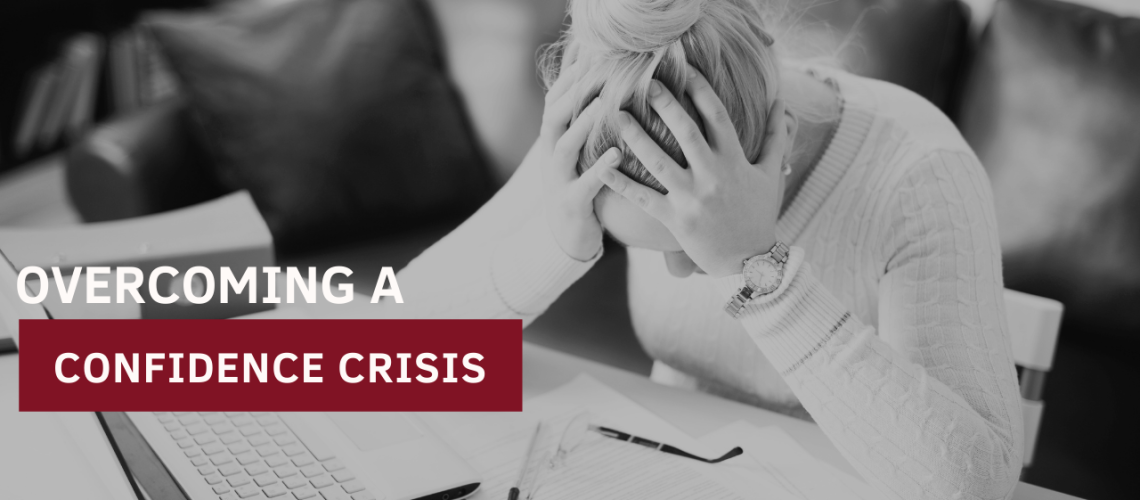
Confidence is a crucial part of our lives. It influences how we think, feel, and act in different situations. However, there are times when we doubt ourselves and lose confidence in our abilities. This can be due to external factors or internal struggles that affect us deeply. The good news is that it’s possible to overcome a confidence crisis by taking specific steps that help build self-esteem and resilience. In this blog post, we will explore some practical tips on how to triumph over a confidence crisis and emerge stronger than ever before!
1- Learn To Ignore Triggers.
Learning to disregard external impulses is one of the most difficult components of overcoming a confidence crisis. We live in a society where we are continuously assaulted with messages, demands, and other people’s views. It’s easy to get preoccupied with what other people think of us, how they view us, and what they say about our skills.
However, it’s essential to remember that other people’s opinions do not define who we are or what we can achieve. The truth is that most people are too preoccupied with their own lives to pay much attention to ours.
Learning to ignore external triggers takes practice and self-awareness. When you find yourself getting caught up in negative thoughts or feedback from others, take a deep breath and remind yourself that these opinions do not reflect your true worth as a person.
Instead of seeking validation from outside sources, focus on cultivating inner strength and resilience. Surround yourself with positive influences such as supportive friends or family members who encourage you to be your best self.
Ignoring external triggers can be difficult but it’s an important step towards building self-confidence. By focusing on your strengths rather than external feedback, you’ll develop a stronger sense of self-worth that will serve you well throughout life’s ups and downs.
2- Take Time To Think About The People In Your Life.
Our relationships have a significant impact on our self-confidence and overall well-being. It’s essential to take some time to reflect on the people in your life and how they make you feel.
Firstly, consider the quality of your relationships. Are they supportive and uplifting or negative and draining? Surrounding yourself with positive people who encourage you can help boost your confidence.
Secondly, evaluate the dynamics of each relationship. Are they balanced or one-sided? Healthy relationships involve mutual give-and-take, respect, and understanding.
Thirdly, think about whether any toxic relationships are affecting your self-esteem negatively. It takes courage to walk away from unhealthy connections that no longer serve us positively.
Don’t forget about the most important relationship – the one with yourself. Treat yourself kindly and practice self-care regularly as it helps build self-confidence too.
In summary, taking time out for introspection is crucial for maintaining healthy relationships that contribute positively towards our mental health.
3- Don’t Waste Your Time On Things That Could Go Wrong.
Have you ever found yourself spending hours upon hours worrying about things that might go wrong? It’s a common issue, and one that can seriously impede our confidence levels. The reality is that we only have so much energy to expend in a day and wasting it on hypothetical scenarios only drains us further.
The first step in overcoming this habit is recognizing when we’re doing it. Pay attention to your thoughts throughout the day – are they mostly focused on negative outcomes? If so, it’s time to shift your perspective. Instead of fixating on what could go wrong, try redirecting your attention towards what’s going right.
Another helpful tactic is mindfulness meditation. By practicing being present in the moment, rather than getting caught up in worries about the future or regrets about the past, we can train ourselves to let go of unhelpful thought patterns.
It’s also important to remember that failure and setbacks are an inevitable part of life – but how we respond to them is within our control. Rather than fearing potential mistakes or missteps, view them as opportunities for growth and learning.
Ultimately, focusing too heavily on worst-case scenarios not only wastes precious mental energy but also prevents us from fully embracing all the positive possibilities available to us in any given situation.
4- Think About What’s Bothering Or Worrying You.
If you’re dealing with a confidence crisis, it’s likely that there are certain situations or scenarios that make you feel anxious or uncertain. One technique that can help is visualization. By visualizing the situation in your mind and mentally rehearsing how you will handle it, you can begin to feel more prepared and confident when it actually occurs.
To start using this strategy, take some time to think about situations that tend to cause worry or stress for you. Maybe it’s giving a presentation at work, meeting new people at social events, or having difficult conversations with family members.
Once you’ve identified these scenarios, spend some time each day visualizing yourself successfully navigating them. Imagine yourself feeling calm and confident as you speak in front of a group or assertively communicate your needs in a relationship.
As you continue to practice visualization regularly, you may find that your anxiety around these situations begins to decrease over time. Remember though – this technique is not an instant cure-all! It takes consistent effort and practice to see results.
5- Self-Assurance Is More Than Just A State Of Mind.
Self-confidence is often thought of as a mere state of mind, but it’s much more than that. It involves a complex set of beliefs and behaviors that can take time to develop. Building self-confidence requires effort, patience, and understanding.
To truly develop self-confidence, you need to work on improving your mindset. This means changing the way you think about yourself and the world around you. You must learn to recognize your strengths and weaknesses objectively, without allowing negative thoughts or emotions to cloud your judgment.
Another important aspect of building self-confidence is taking action towards your goals. Without action, even the most confident person will struggle to achieve their dreams. Taking small steps towards success can help boost confidence levels over time.
Self-care is also an essential component of building confidence in oneself. Eating well-balanced meals, getting enough sleep each night, exercising regularly and engaging in activities that bring joy are all crucial for maintaining positive energy levels.
Surrounding yourself with supportive people who believe in you can make all the difference when it comes to building self-confidence. Seek out individuals who encourage growth instead of tearing others down through criticism or negativity.
In summary, self-confidence isn’t just a simple state of mind; rather ,it’s a combination of belief systems , actions taken toward one’s goals ,self-care practices,and having supportive relationships which help us become our best selves .
6- Learn How To Speak Out For Yourself.
Overcoming a confidence crisis is a journey that requires effort and patience. It’s not something that happens overnight, but it’s definitely possible to achieve. By ignoring external stimuli, maintaining a positive outlook on life, reflecting on your relationships, visualizing positive outcomes instead of negative ones and learning to speak up for yourself – you’ll be well on your way to feeling more confident in yourself and your abilities.
So take the first step today by implementing some of these strategies into your daily routine. And remember, self-confidence is not just about having a “can-do” attitude; it’s also about being comfortable with who you are as a person. You’re unique and valuable in your own right, so don’t let anyone tell you otherwise!
7- Keep A Journal
Keeping a diary is an excellent way to track your progress and stay motivated, especially when you’re dealing with a confidence crisis. By noting down all the positive things that happen during the course of the day, you can train yourself to focus on the good instead of dwelling on negative thoughts.
It’s important to be specific when recording these events. Instead of writing “had a good day,” try listing out exactly what made it good. Did you get complimented by someone at work? Did you have a great workout at the gym? These specifics will help reinforce positive thinking patterns in your brain.
Make sure to also take note of any personal accomplishments or milestones that occurred throughout the day. Maybe you finished reading a book or finally tackled that big project at work. These small achievements can add up over time and boost your self-confidence.
Don’t forget to review your diary regularly! Take some time each week to read through previous entries and reflect on how far you’ve come since starting this practice. Not only will this give you a sense of accomplishment, but it will also remind you that even small steps forward are worth celebrating.


